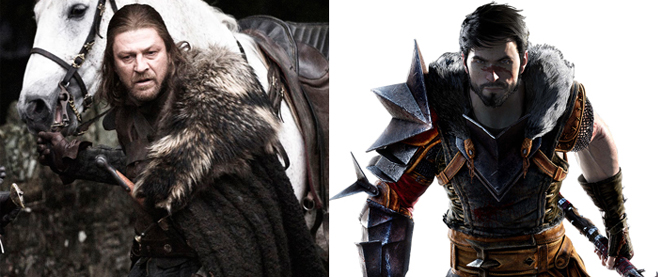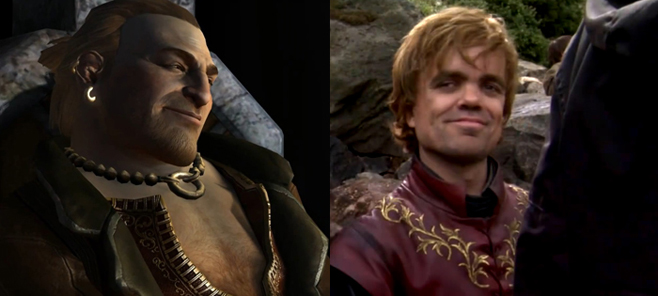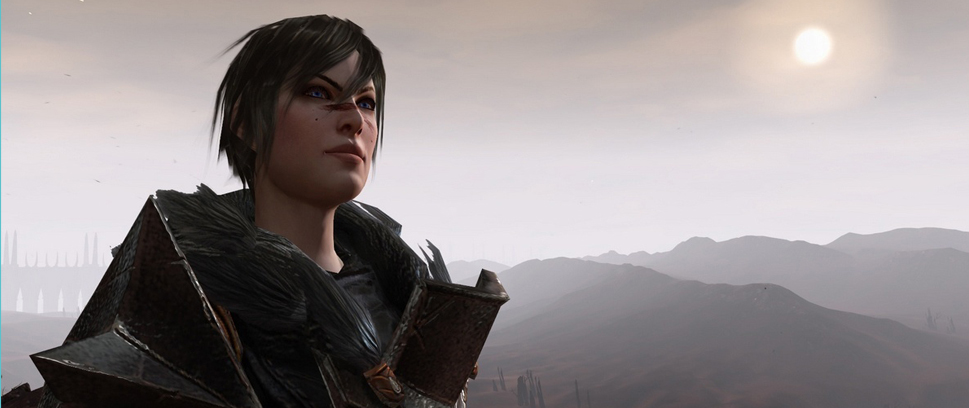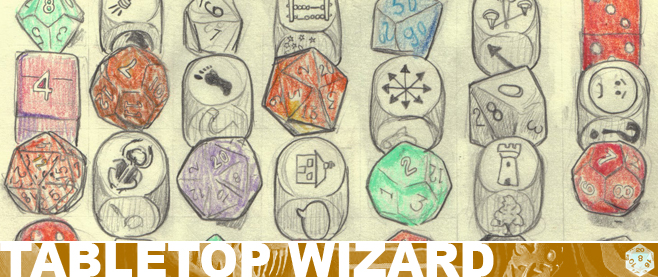
A Song of Dragons and Thrones
For a long time, I have viewed the Black Isle/Bioware RPG nexus as the gold standard for storytelling in videogames. The pedigree is without peer. Baldur’s Gate. Planescape: Torment. Fallout. Neverwinter Nights. Star Wars: Knights of the Old Republic. Jade Empire. Mass Effect.
Dragon Age.
And yet…I recently began reading George R. R. Martin’s epic A Song of Ice and Fire, a series of monstrously thick fantasy novels that had served as the inspiration behind the world of Dragon Age. I had long avoided the books for no other reason than they looked overlong and their fans seemed to despair at the frequency of their publication. Now, nearly two thousand pages in, I see what a mistake it was to ignore them. They are fantastically realized books and, in terms of narrative, they make Dragon Age look like child’s play.
It is a strange thing to see a sacred cow (…er, aurochs?) slaughtered in front of you.

The novels are masterpieces of pacing, structure, character and plot that revolve around the dynastic struggles of fictional medieval realm – the intricacy of the world and its intrigues is almost without peer. Meanwhile, Dragon Age: Origins, with its three part ‘raise an army’ quest, childish blood spatter and obvious treachery (Loghain’s betrayal of King Cailan at the start of the game cannot begin to compare to the perverse machinations of the Lannisters in Martin’s books), all of which seemed so complex and fascinating not so long ago, now suddenly feels rote.
For me, the Dragon Age games have become pastiche. Every time I look at Hawke, the hero of Dragon Age 2 (which I am still in the middle of), I can see the bones of an albatross around his neck. Imitation may be the sincerest form of flattery, but an original game narrative it will never be.
The things we do for love, indeed.





